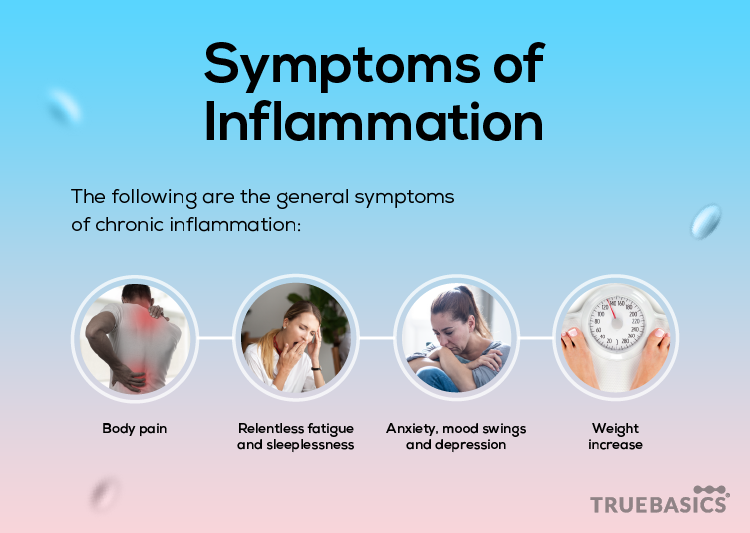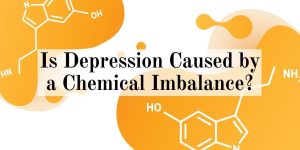Last updated on August 30, 2023
Inflammation is a natural response that helps our bodies fight off harmful pathogens and heal injuries. However, when inflammation becomes chronic and persists over an extended period of time, it can wreak havoc on our health. From joint pain to digestive issues, chronic inflammation has been linked to a wide range of diseases. Luckily, there are several ways we can reduce inflammation in our bodies and promote overall wellness. In this article, we will explore effective strategies for combating chronic inflammation and achieving optimal health. Whether you’re seeking relief from persistent pain or simply looking to improve your well-being, these tips will provide invaluable guidance on reducing body inflammation naturally.
Common Triggers Of Inflammation
Inflammation is a natural response of the immune system to protect the body from infection and injury. However, chronic inflammation can have detrimental effects on our health. To effectively reduce body inflammation, it is crucial to identify and address its underlying causes. While there are various triggers of inflammation, some common culprits include poor diet, stress, lack of exercise, and environmental toxins.
- One major contributor to inflammation is an unhealthy diet high in processed foods, refined sugars, and saturated fats. These foods can promote inflammation by increasing levels of pro-inflammatory molecules in the body. On the other hand, a plant-based diet rich in fruits, vegetables, whole grains, and omega-3 fatty acids has been shown to have anti-inflammatory effects.
- Stress is another trigger that can significantly impact our inflammatory response. When we experience chronic stress, our bodies release hormones like cortisol which can lead to increased inflammation over time. Finding healthy ways to manage stress such as meditation or engaging in relaxing activities like yoga or breathwork can help reduce inflammation levels.
- Additionally, sedentary lifestyles devoid of regular physical activity contribute to higher levels of systemic inflammation. Exercise has been found not only to decrease overall markers of systemic inflammation but also to enhance immune function. Engaging in moderate-intensity activities like walking or cycling for at least 150 minutes per week can be effective in controlling chronic inflammation.
Lastly, exposure to environmental toxins including air pollution and chemicals found in cleaning products or pesticides can trigger inflammatory responses within the body.
Anti-Inflammatory Foods
Incorporating anti-inflammatory foods into your diet is not only a delicious way to add variety to your meals, but it can also help reduce inflammation in the body.
- One food group that is particularly powerful in fighting inflammation is berries. Berries such as blueberries, strawberries, and raspberries are packed with antioxidants that can help protect against oxidative stress and inflammation. Additionally, these small fruits are also rich in fiber, which has been shown to have anti-inflammatory effects on the body.
- Another group of foods that are worth incorporating into your meals for their anti-inflammatory properties is fatty fish. Fish such as salmon, mackerel, sardines, and trout are high in omega-3 fatty acids, which have been extensively studied for their potential to reduce inflammation in the body. Omega-3 fatty acids can help decrease the production of inflammatory substances and promote a healthier balance of fats in our cells. Adding grilled or baked fish dishes to your menu at least twice a week can provide you with essential nutrients while combatting inflammation.
- Moreover, spices like turmeric and ginger add both flavor and health benefits to your diet by reducing inflammation levels. Turmeric contains curcumin – a compound known for its powerful anti-inflammatory properties – which has been widely used in traditional medicine practices for centuries. Ginger also boasts similar benefits due to its active compounds called gingerols.
Healthy Habits To Reduce Inflammation
In today’s fast-paced world, chronic inflammation has become a significant concern for many individuals. Inflammation is the body’s natural response to injury or illness but when it becomes chronic, it can wreak havoc on our health. Fortunately, we have the power to make lifestyle changes that can significantly reduce inflammation in our bodies.
- One simple yet effective lifestyle change is incorporating anti-inflammatory foods into our diet. Foods high in omega-3 fatty acids such as fatty fish, chia seeds, and walnuts have been shown to reduce markers of inflammation in the body. Additionally, increasing our intake of fruits and vegetables rich in antioxidants can help combat oxidative stress and lower levels of inflammation.
- Another important aspect of reducing inflammation is managing stress levels. Chronic stress triggers an inflammatory response in the body, so finding healthy coping mechanisms is essential. Engaging in regular exercise not only promotes overall well-being but also reduces inflammation by lowering key markers like C-reactive protein (CRP). Moreover, mindful practices such as meditation or yoga have been shown to decrease inflammatory markers and promote relaxation.
Supplements:
Supplements have gained immense popularity in recent years as people seek natural remedies to reduce inflammation in the body.
- One such supplement that has captured attention is turmeric. Known for its vibrant yellow color, turmeric contains a compound called curcumin, which boasts potent anti-inflammatory properties. Studies have shown that curcumin can help to suppress the production of inflammatory molecules in the body, thus alleviating inflammation. Whether consumed as a powder or taken in capsule form, turmeric supplements provide an easy and convenient way to incorporate this powerful spice into your daily routine.
- Another supplement worth exploring is fish oil. Rich in omega-3 fatty acids, fish oil has been shown to possess anti-inflammatory effects. These essential fatty acids play a crucial role in regulating inflammatory processes within the body, effectively reducing inflammation symptoms like swelling and pain. Incorporating fish oil into your diet can be done through supplementation or by eating fatty fish such as salmon, mackerel, or sardines. However, if you’re not a fan of seafood or struggle to consume enough omega-3s naturally, opting for a high-quality fish oil supplement may be your best bet.
Physical Activity To Combat Inflammation
Exercise is not only crucial for maintaining overall health and fitness, but it can also play a significant role in combating inflammation in the body. When we engage in regular physical activity, we increase our blood flow and circulation, which helps to remove toxins and reduce inflammation. In addition, exercise stimulates the production of certain hormones like endorphins, which act as natural pain relievers and anti-inflammatory agents.
- One study even found that moderate-intensity exercise can reduce markers of inflammation in the body, such as C-reactive protein (CRP) levels. This suggests that incorporating regular exercise into your routine can have a direct impact on decreasing inflammation. It doesn’t have to be an intense workout; even low-impact activities like walking, swimming, or yoga can be beneficial. Aim for at least 30 minutes of physical activity most days of the week to reap these anti-inflammatory benefits.
- Furthermore, it’s worth noting that exercise also supports weight management, which is another essential factor in reducing inflammation. Excess weight puts additional stress on our joints and organs, leading to chronic low-grade inflammation throughout the body. By engaging in regular physical activity and maintaining a healthy weight range, you can significantly lower your risk of developing conditions associated with chronic inflammation like heart disease and diabetes.
Incorporating exercise into your daily routine not only strengthens your muscles and boosts your cardiovascular health but also acts as a powerful tool against systemic inflammation.
Conclusion:
In conclusion, reducing body inflammation requires a multi-faceted approach that goes beyond short-term remedies. While it is important to address the immediate symptoms of inflammation, focusing on long-term relief is essential for maintaining overall health and well-being.
One key tip for long-term relief is incorporating an anti-inflammatory diet into your lifestyle. This involves emphasizing whole foods such as fruits, vegetables, lean proteins, and healthy fats while minimizing processed foods, sugary drinks, and refined carbohydrates. Additionally, including anti-inflammatory spices like turmeric and ginger can provide added benefits.
Another important aspect of long-term relief from inflammation is stress management. Chronic stress can lead to increased inflammation in the body, so finding effective ways to relax and reduce stress levels is crucial. Practices such as yoga, meditation, deep breathing exercises, or engaging in hobbies that bring joy can all be helpful in managing stress and decreasing inflammation.
By adopting these tips for long-term relief from body inflammation through diet and stress management practices, you can take control of your health and experience lasting improvements in your overall well-being.






Be First to Comment